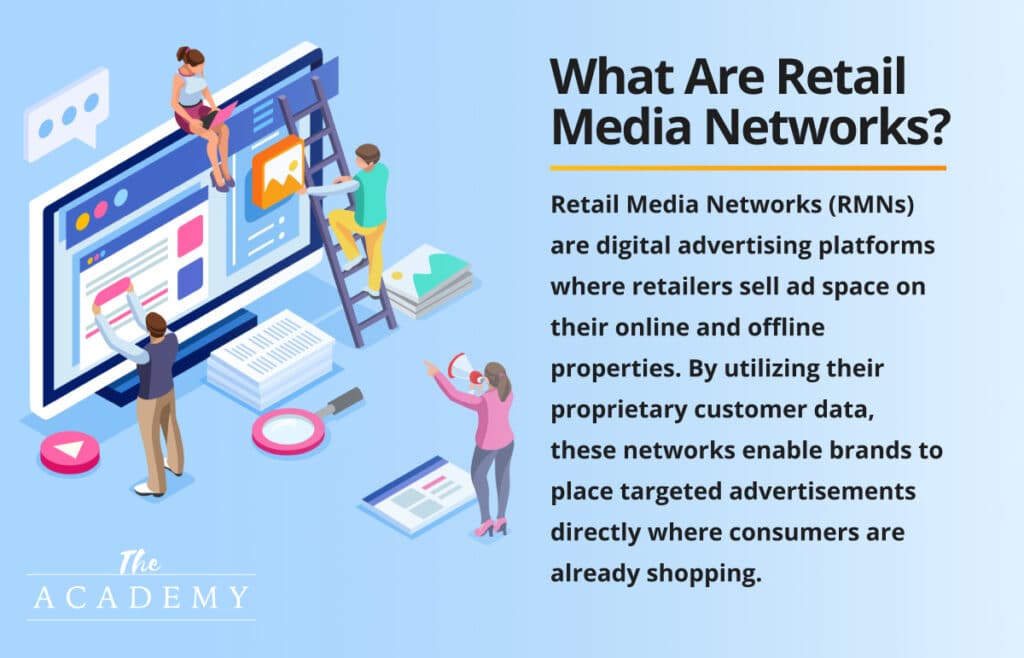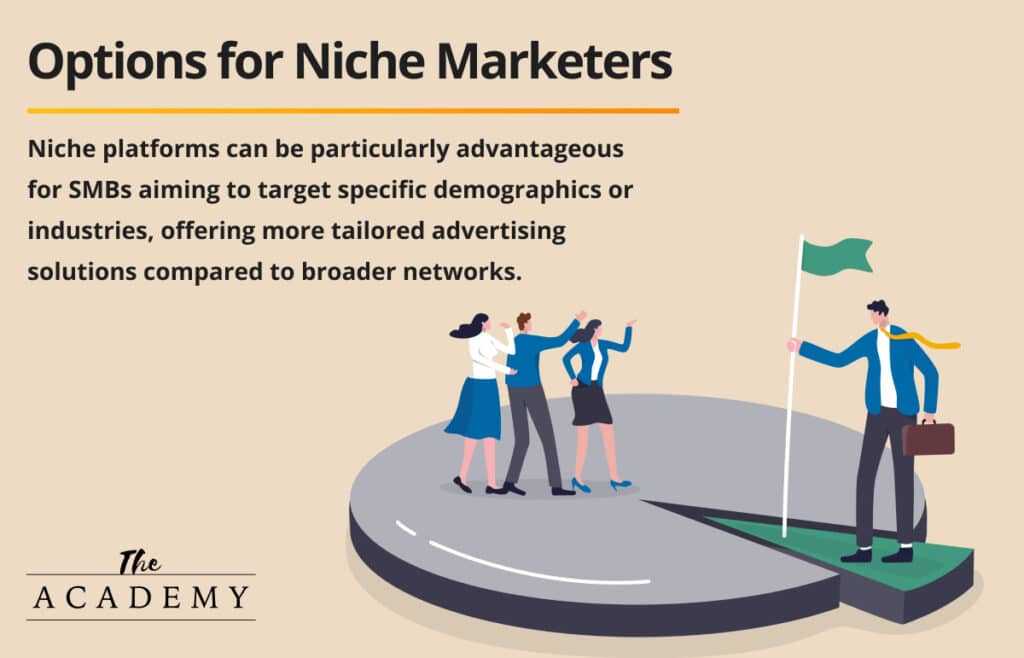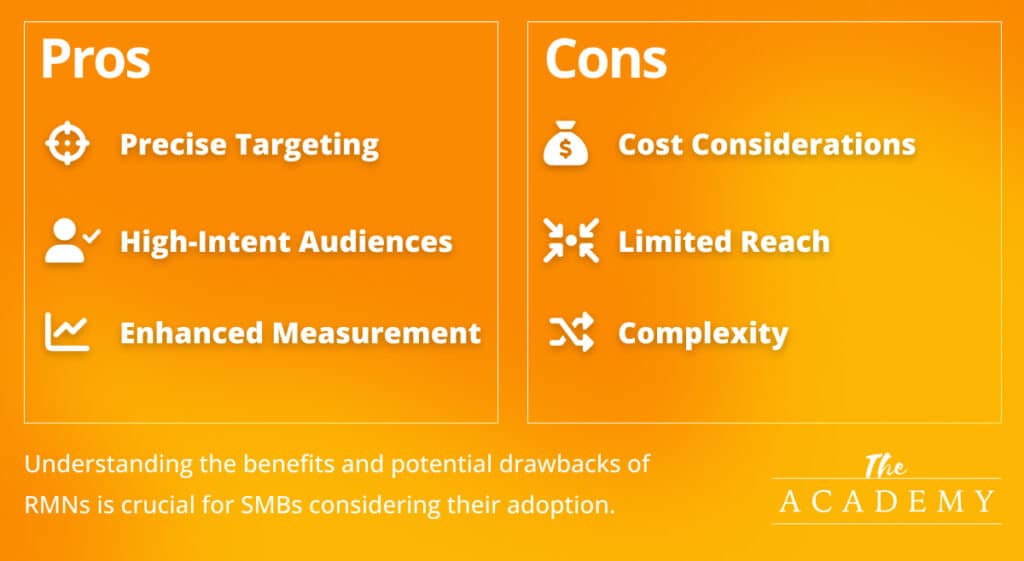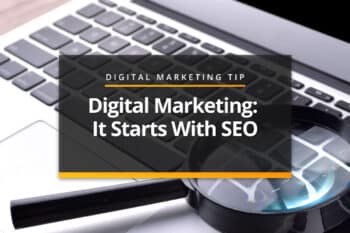
As marketers, we often stick to our comfort zones—relying on traditional Google Search Ads and Facebook to spread the word about our businesses. But in today’s rapidly evolving digital landscape, playing it safe can mean missing out on game-changing opportunities. Enter Retail Media Networks (RMNs): a potent alternative that’s reshaping how small and medium-sized businesses connect with their target audiences.
While established platforms like Google Ads and Facebook Ads have long dominated the advertising sphere, RMNs have emerged as a strategic powerhouse. These networks offer Small-to-Medium Businesses (SMBs) unique opportunities for precise audience targeting, leveraging first-party data to place advertisements exactly where consumers are most likely to make purchasing decisions. By expanding our marketing toolkit and continuously testing new channels, we open ourselves to more data-driven approaches that can dramatically enhance campaign performance and return on investment.
This article will dive deep into the world of RMNs—breaking down their essence, exploring their advantages and challenges, and providing small business owners with a comprehensive guide to navigating this innovative advertising landscape.
What Are Retail Media Networks?

Retail Media Networks aren’t exactly a new concept—they’re more like the modern evolution of an old strategy. Back in my days as a direct marketer, I’d send postcards, catalogs, and sales letters to carefully targeted niche audiences.
A key part of the strategy was leveraging rented lists, which were abundant depending on your industry. These lists typically fell into two categories: Aggregated Lists (think Harris InfoSource or ZoomInfo), which compiled contact information from various sources of publicly available data, and what we always found valuable, ‘Response Lists.’ These were lists from successful companies featuring proven buyers in a specific category. You could rent these lists or even do a ridealong campaign to tap into that already-engaged audience.
RMNs are digital advertising platforms where retailers sell ad space on their online and offline properties. By utilizing their proprietary customer data, these networks enable brands to place targeted advertisements directly where consumers are already shopping, increasing the probability of purchase. This creates a win-win scenario: advertisers gain precise audience targeting, while retailers generate additional revenue through strategic ad placements.
Popular Retail Media Networks
Several prominent retailers have developed their own media networks, providing advertisers with diverse platforms to reach potential customers:
Amazon Advertising
As a pioneer in the RMN space, Amazon offers a comprehensive suite of advertising solutions, including sponsored products, display ads, and video ads, capitalizing on its vast customer data to facilitate precise targeting.
Visit the Amazon Advertising Registration Page to create an account and explore advertising solutions such as Sponsored Products, Sponsored Brands, and Amazon DSP.
Google Merchant Center
Google Merchant Center enables businesses to showcase their products across Google platforms, including Shopping ads, Search, and YouTube. By integrating product data directly into the platform, advertisers can create highly targeted campaigns that display specific items to users actively searching for related products. This precision, combined with Google’s expansive reach, makes it an essential tool for e-commerce SMBs looking to drive online sales.
Access the Google Merchant Center to upload and manage your product data, enabling your products to appear across Google platforms.
LinkedIn Ads
LinkedIn Ads offer businesses the ability to connect with professionals across industries through tailored ad formats such as Sponsored Content, Message Ads, and Dynamic Ads. Leveraging LinkedIn’s rich professional demographic data, advertisers can target users based on job title, industry, company size, and skills. This makes LinkedIn an invaluable platform for B2B marketers aiming to generate high-quality leads and build relationships with decision-makers.
Navigate to the LinkedIn Marketing Solutions page to set up your advertising account and start creating targeted campaigns.
Walmart Connect
Walmart’s RMN provides advertisers with opportunities to place ads across Walmart’s digital properties and in physical stores, utilizing shopper data to enhance ad relevance.
Visit the Walmart Connect website to learn about their advertising offerings and initiate the onboarding process.
Target’s Roundel
Roundel allows brands to engage with Target’s customer base through various ad formats, including display and social media ads, supported by Target’s extensive first-party data.
Go to the Roundel page to discover advertising opportunities with Target and start the engagement process.
In addition to these giants, RMNs that cater specifically to smaller businesses and specialized markets:
Best Buy Ads
Launched in 2022, Best Buy’s RMN offers advertisers the ability to reach tech-savvy consumers through targeted ads on Best Buy’s platforms.
Visit the Best Buy Ads website to explore their advertising solutions and begin your campaign setup.
Lowe’s One Roof Media Network
This platform enables advertisers to connect with home improvement enthusiasts via Lowe’s digital and physical channels.
Visit the Lowe’s Media Network page to explore their omnichannel advertising solutions and begin the onboarding process.
One platform I’m particularly excited about, though still in its early stages, is Intuit’s SMB MediaLabs. However, it seems they are currently focusing on partnering with major advertisers to target their extensive list of SMBs. The platform promises exceptionally accurate data quality, leveraging a wide range of additional demographic insights from Intuit’s ecosystem.
Intuit’s SMB MediaLabs
Intuit’s SMB MediaLabs is an emerging RMN designed specifically for small and medium-sized businesses. By leveraging anonymized, aggregated data from its suite of products like QuickBooks and Mailchimp, SMB MediaLabs empowers advertisers to create data-driven, privacy-centric campaigns. This platform is especially valuable for businesses seeking to target niche audiences efficiently while adhering to stringent data privacy standards.
For small businesses, SMB MediaLabs offers a unique opportunity to harness Intuit’s vast ecosystem to enhance advertising effectiveness, optimize marketing budgets, and drive measurable growth. With features like comprehensive support and precision targeting, it’s a game-changer for SMBs entering the digital advertising space.
To get started, visit SMB MediaLabs by Intuit for detailed information and onboarding assistance.
Additional Options for Niche Marketers
These niche platforms can be particularly advantageous for SMBs aiming to target specific demographics or industries, offering more tailored advertising solutions compared to broader networks.

In fact even more niche audiences exist as well:
1. NetLine
NetLine is a content syndication platform that enables B2B marketers to distribute content across a network of industry-specific websites. This approach allows businesses to generate high-quality leads by targeting professionals actively seeking information relevant to their industries. NetLine’s extensive reach and focus on content engagement make it a valuable tool for SMBs aiming to connect with niche B2B audiences.
Visit the Lowe’s Media Network page to explore their omnichannel advertising solutions and begin the onboarding process.
2. Business.com
Business.com operates as a digital media company and B2B web destination, offering various performance marketing advertising options, including lead generation products on a pay-per-lead and pay-per-click basis, directory listings, and display advertising. The platform covers business industry news and trends, providing a comprehensive resource for growth companies and the B2B community. By advertising on Business.com, SMBs can reach a targeted audience of business professionals seeking products and services to enhance their operations.
Navigate to the Business.com Advertising page to learn about their advertising opportunities and to initiate your engagement with their platform.
3. Thomasnet
Yes, Thomasnet – they are still a viable option! Thomasnet is a comprehensive platform connecting industrial buyers and suppliers in North America. It offers a vast directory of manufacturers, distributors, and service providers across various industries. For B2B manufacturers and service providers, Thomasnet provides targeted advertising opportunities to reach procurement professionals and engineers seeking specific products and services, thereby enhancing lead generation efforts.
For personalized guidance and to discuss specific advertising options, reach out to Thomasnet’s support team through their Help Center.
4. Engineering.com
Engineering.com is a digital media platform that delivers engineering news, information, and resources to a global audience. It offers advertising solutions that allow businesses to reach engineers and technical professionals through content marketing, display ads, and sponsored content. For SMBs offering engineering products or services, this platform provides access to a niche audience of industry professionals.
Engineering.com offers a range of advertising solutions tailored to reach professionals in the engineering field. To explore these opportunities and access their media guide, visit the Engineering.com Media Guide.
5. Spiceworks
Spiceworks is a professional network and online community for IT professionals. It offers a platform for tech marketers to engage with IT decision-makers through display advertising, content sponsorships, and community engagement. For SMBs in the IT sector, Spiceworks provides a targeted environment to connect with potential clients and industry peers.
These niche B2B platforms offer SMBs the opportunity to engage with specific professional audiences, facilitating more effective lead generation and brand awareness within targeted markets. By leveraging these specialized RMNs, businesses can optimize their marketing efforts to reach the most relevant prospects.
Self-Serve Advertising: Spiceworks provides self-serve advertising options, allowing you to place ads directly in front of IT professionals. To start a campaign, visit the Spiceworks Self-Serve Ads page.
Pros and Cons of Using Retail Media Networks
Understanding the benefits and potential drawbacks of RMNs is crucial for SMBs considering their adoption:

Pros
- Enhanced Measurement: RMNs often provide detailed analytics, allowing advertisers to track performance metrics and optimize campaigns in real-time.
- Precise Targeting: RMNs utilize retailers’ first-party data, enabling advertisers to target audiences based on factors like purchase history, browsing behavior, and demographic information, leading to more effective ad placements.
- High-Intent Audiences: Advertising on RMNs allows brands to reach consumers who are already in a shopping mindset, increasing the likelihood of conversion.
Cons
- Cost Considerations: Advertising on RMNs can be expensive, with costs varying based on the retailer and ad format. SMBs need to assess whether the potential return justifies the investment.
- Limited Reach: Focusing on a single retailer’s network may restrict audience reach compared to broader platforms like Google Ads.
- Complexity: Navigating multiple RMNs requires understanding each platform’s unique processes and metrics, which can be resource-intensive for SMBs.
Demographic Targeting Capabilities
RMNs offer robust demographic targeting options, allowing SMBs to tailor their advertising efforts effectively:
- Location: Target consumers based on geographic regions, enabling localized marketing campaigns.
- Behavior: Leverage data on consumers’ browsing and purchasing behaviors to deliver relevant ads.
- Purchase History: Utilize insights into past purchases to recommend complementary products or services.
- Company Size and Industry: For B2B manufacturers, some RMNs provide targeting based on company demographics, facilitating precise outreach.
- Interests: Align ads with consumers’ interests, enhancing engagement and conversion rates.
These capabilities empower SMBs to reach their ideal customers more effectively, optimizing marketing spend and improving ROI.
Expected Results
When leveraging RMNs, SMBs can anticipate several outcomes:
- Improved Return on Ad Spend (ROAS): By targeting high-intent shoppers, businesses often experience a higher ROAS compared to traditional advertising channels.
- Quality Lead Generation: Access to first-party data enables the acquisition of leads more likely to convert, enhancing sales efficiency.
- Enhanced Brand Visibility: Presence on prominent retail platforms can boost brand awareness and credibility among consumers.
However, results can vary based on factors such as ad quality, relevance, and the competitiveness of the market.
Cost Considerations
Understanding the financial aspects of RMNs is vital for SMBs:
- Minimum Investment: Some RMNs may require a minimum spend commitment, which can be a barrier for smaller businesses.
- Cost Models: RMNs typically operate on Cost Per Mille (CPM) or Cost Per Click (CPC) models. CPM involves paying for every thousand impressions, while CPC charges per individual click.
- Testing Budgets: It’s advisable for SMBs to start with a modest budget to test the effectiveness of RMNs before scaling up investments.
Careful budgeting and analysis are essential to ensure that advertising spend aligns with business goals and delivers a positive ROI.
Matching the Right Retail Media Network to Your Business
These examples are just the beginning. While they may not perfectly align with your specific target market or client persona, they provide a solid starting point for exploring the potential of Retail Media Networks. Use these as inspiration to dig deeper, research other platforms, and discover the ideal fit for your industry and business goals. The right RMN can make all the difference in effectively reaching your audience and driving meaningful results.
Most Popular Articles

Seeing Favicons in Your Google Search Results? Here’s Why…
Have you noticed anything different in your Google Search results lately? Google added tiny favicon icons to its organic search results in January. It was…

Business Growth and Digital Marketing News & Tips 11-17-24
Are you encouraging and rewarding innovation? Lee Cockerell is the former Executive Vice President of Operations at Walt Disney World. A lover of traditional red…

Business Growth and Digital Marketing News & Tips 11-27-24
A culture of gratitude "Feeling gratitude and not expressing it is like wrapping a present and not giving it." – William Arthur Ward Beyond being…








